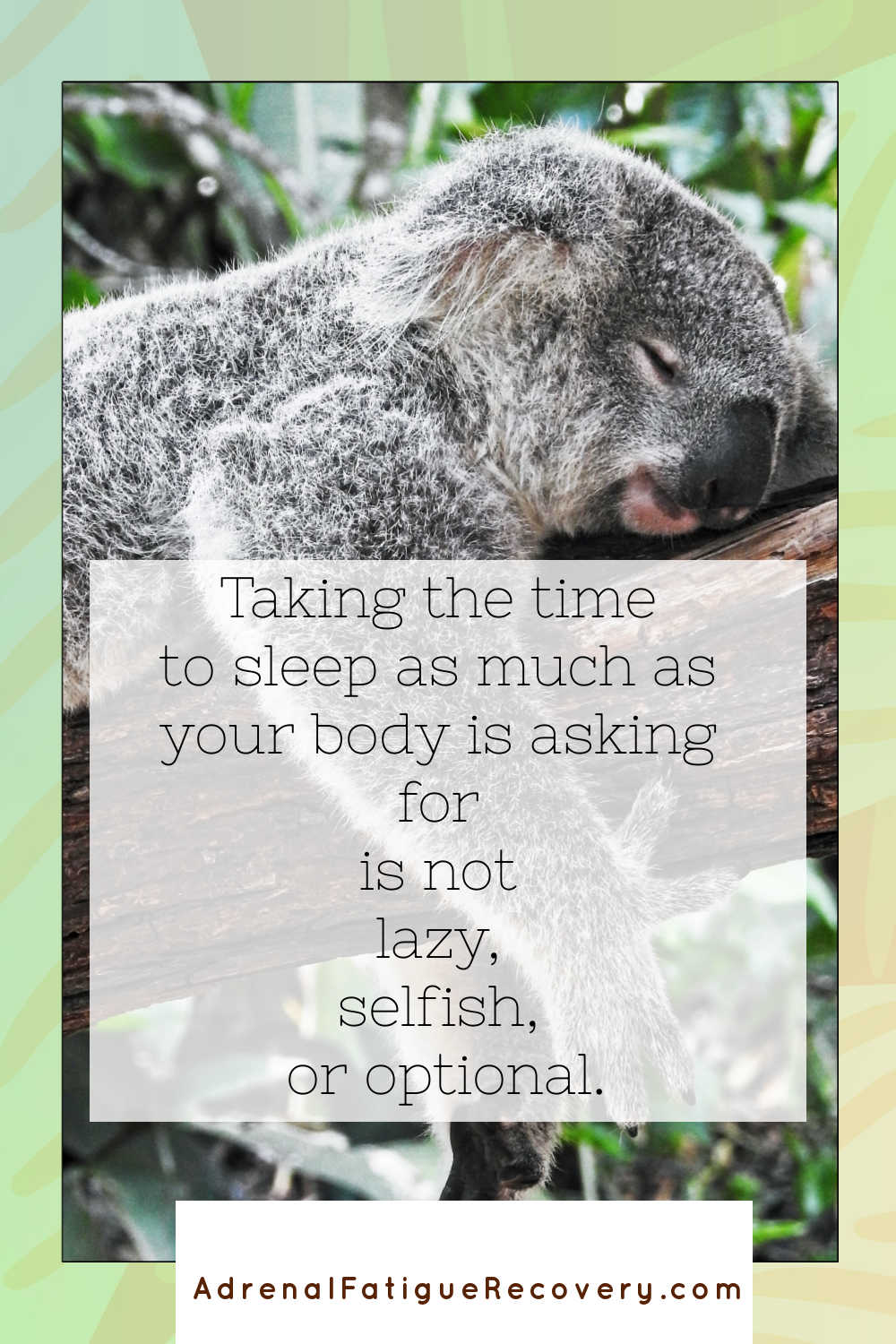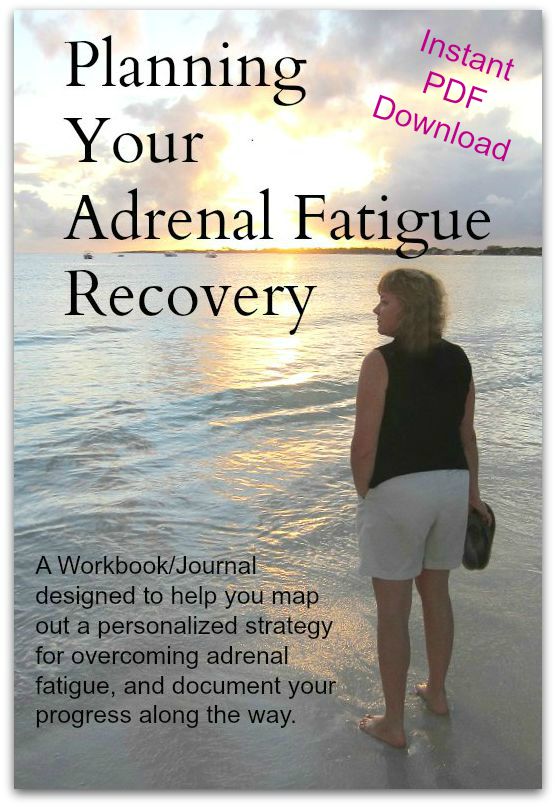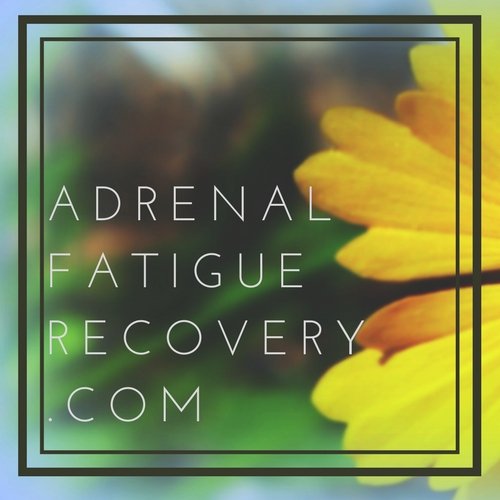Plan for Wellness
Treating Adrenal Exhaustion:
REDUCE
and
REBUILD
There are two facets to a successful recovery from adrenal exhaustion:
Reducing the stressors that are draining your adrenals, and
Rebuilding your adrenal glands.
In order to do that, we need to address 3 separate areas of lifestyle changes
for healthy living:
Diet and Nutrition
Sleep
and
Stress Reduction.
Each of those areas has some specific "Dos and Don'ts" that are essential for treating adrenal fatigue.
Reduce Stressors
that are Draining your Adrenals
Diet/Nutrition
- Reduce, with the goal of eliminating, consumption of foods that stimulate excessive production of cortisol or raise blood sugar: caffeine, alcohol, allergens, sugar, artificial sweeteners. Quitting substances like caffeine cold turkey can be just as stressful on your adrenals as consuming them, so start by just trying to cut your daily consumption in half. For a more thorough discussion of how these specific stressors affect your adrenal glands, read The Schwarzbein Principle II: The Transition.
Sleep
- staying up late, getting up early, and ignoring your urge to nap are all stressful to your adrenal glands, which repair themselves best during your sleeping hours. Taking the time to sleep as much as your body is asking for is not lazy, selfish, or optional. It is a crucial part of your recovery, and will directly influence the length of time it takes for you to recover.
- Get out of the cycle of coffee to keep awake/sleeping pills to help sleep. These artificial "uppers" and "downers" that work counter to your circadian rhythm/cortisol cycle/adrenal signals are doing you more harm than good. The solution to getting going in the morning is not a caffeine buzz, it's having had enough sleep. An adrenal glandular supplement taken in the morning may help get your cortisol levels up where they need to be in the mornings. A magnesium supplement before bed will help you relax and fall asleep, and is supportive to your adrenal function.
- Reduce your exposure to bright lights and LED screens in the evenings to allow your body to produce melatonin, the hormone that counters cortisol and signals your body to start getting sleepy. Read more here about the cortisol/melatonin connection.
Stress Reduction
- identifying situations/relationships that cause high levels of stress. It is very helpful to make a list of the things in your life that cause a stress reaction . And I don't just mean the big things, sometimes those nagging little things like that constant drip, drip, drip of the kitchen faucet (that you've been asking someone to fix for months ) are bugging you more than you realize. While the dripping faucet may not be THE cause of your adrenal exhaustion, all of those little things add up, and can keep you from ever getting even a little bit of downtime to relax.
- eliminate environmental toxins: chlorine, flouride, plastics, and other endocrine disruptors. Evaluate your exposures to chemicals that may be "common household cleaners", but are actually highly toxic dangers that should have no place in your home. The chemicals you use every day to clean your home could be contributing to your adrenal exhaustion.
- Moderate physical activity. While you should not become a complete couch potato, excessive physical exertion is draining to your adrenals. Choose light exercise, walking, yoga, etc. over a fast-paced aerobic workout.
Rebuild your Adrenal Glands
Diet/Nutrition
- Follow the adrenal fatigue diet guidelines for eating right: high protein, 3 meals, 3 snacks.
- Supplements are an important part of recovering from adrenal exhaustion. Some supplements you should consider are an adrenal glandular, magnesium, GABA, high-quality multi-vitamin, vitamin C, and possibly a B-Complex.
Sleep
- Set a bedtime that is no later than 9-10pm and stick to it.
- As often as possible, stay in bed as late as you can. Your adrenals do their best repair work between 7-9am. If you need to get up and send the kids off to school, plan to go back to bed afterwards.
- Nap when you feel the need. The more you try to "push thru" those sleepy times, the more you are demanding your adrenals to muster up what they don't have. Plan for a daily nap.
- Learn more about the connection between sleep and stress relief, and melatonin, the nighttime hormone to counter cortisol.
Stress Reduction
- Make a plan to reduce/eliminate/deal with stressful situations/relationships. Take the time to evaluate each of the stress sources on the list you made above, and brainstorm a plan for dealing with each one. Is there a way you can eliminate this stress? If not, what are your options for reducing your stress about it? There are probably several "small" things (like the dripping faucet) that are easy enough to fix that you can knock several things off your list pretty quickly. Others may not be as simply resolved, but actually taking the time to identify them and consider solutions will be therapeutic in itself, and you may actually come up with a workable solution!
- Learn relaxation breathing and practice it when you feel anxiety building. The more you do it, the better it will work for you. It's a way to re-train your body's response to stress.
- Herbal stress relief- There are several herbs that are helpful for reducing stress, either as a nutritional supplement (Valerian), herbal tea (chamomile), or aromatherapy (lavender).
Since the causes of adrenal fatigue are a little different for everyone, your personal approach to treating adrenal exhaustion is going to be individual as well. Identify your particular weak spots in each of these areas, and purpose to make the healthy lifestyle changes necessary to recover.

Read Next:

About Product Recommendations
Please note that while I do receive
commissions from some of the things promoted on this site, I recommend
them wholeheartedly because I feel they would be of benefit to you.
Advertisers/Affiliates have been hand-picked so that only
quality products are recommended. I have used many of these products in my own life and
share them with you because that's what friends do.
Read my full
advertising policy
here.






